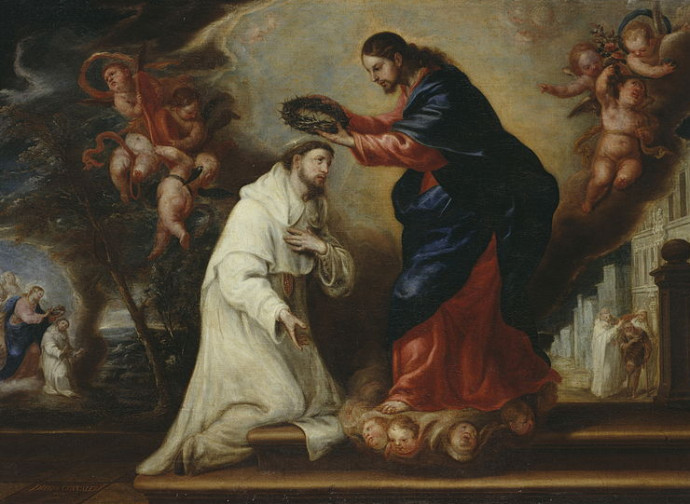Saint Raymond Nonnatus
Saint Raymond Nonnatus (c. 1200-1240) lived during the Reconquista of Spain. He wore the habit of the Mercedarians, that is, of those religious who professed a fourth vow - called “of redemption” - and undertook to free the Christians enslaved by the Muslims. To this end they offered their goods in exchange or even took the place of prisoners at risk of renouncing the faith.

Saint Raymond Nonnatus (c. 1200-1240) lived during the Reconquista of Spain. He wore the habit of the Mercedarians, that is, of those religious who professed a fourth vow - called “of redemption” - and undertook to free the Christians enslaved by the Muslims. To this end they offered their goods in exchange or even took the place of prisoners at risk of renouncing the faith.
The nickname Nonnatus (“unborn”) comes from the fact that he was cut out of his deceased mother's womb, as she had died before she could give birth. The event took place on Catalan territory, in the village of Portell, later called Sant Ramón.
When he was still a boy he heard about the charitable work of Peter Nolasco (c. 1180-1256), the saint who in 1218 founded the Order of Our Lady of Mercy and the Redemption of the Captives (abbreviated B. M. de Mercede, hence the name Mercedarians). Around the age of 21, Ramon entered the mendicant Mercedarian Order and undertook various missions to ransom Christian prisoners. The hagiographic tradition focuses in particular on three journeys, one of which was to Valencia in 1224 (it was freed 14 years later), where he ransomed 233 slaves, and another two to Algiers, with the liberation of a total of 290 other Christians. It was on one of these missions in North Africa that Ramon, having exhausted the material goods that could be used for ransom, offered himself to free a family man.
Among the other prisoners who had grown up in his same faith, the saint, though subject to mistreatment, began to fortify his companions by reminding them of Christ's teachings and promises for those who suffer for Him. According to tradition, his work of comfort and conversion was so effective that the Muslim guards pierced his lips and padlocked them to prevent him from speaking. In the end his confreres managed to ransom him and in 1239 he was able to return to Spain. He died a year later in the castle of Cardona, on Catalan soil. His tomb immediately became a place of pilgrimage. It was desecrated and destroyed during the Spanish Civil War (1936-1939).
Patron of: children, midwives, childbirths
